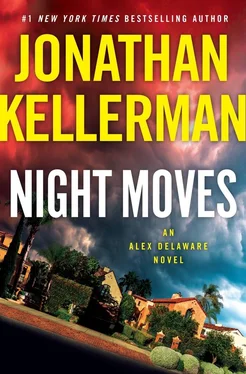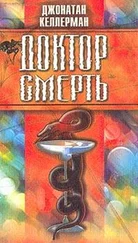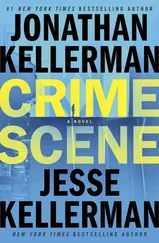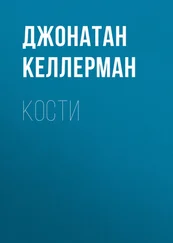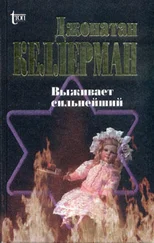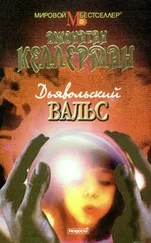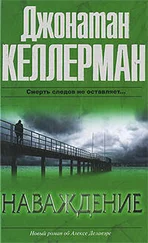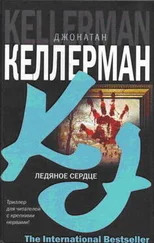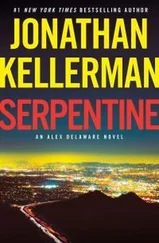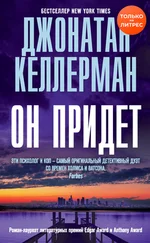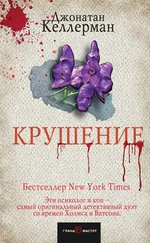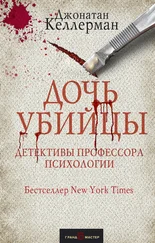“Sequoia,” she said. “We went for a weekend, stayed at some lodge, it rained almost the whole time. I did crosswords while Hal did his thing. He came back soaked because of course he wouldn’t take an umbrella. He did get me outdoors for these right before we left. Do you need both of them?”
“One’s fine, Mrs. Braun.” Taking the hand-holding shot and returning the other to her.
“If you could get it back to me,” she said.
“We’ll make a copy and do that. In terms of a physical object Mr. Braun might have—”
“No, sorry, can’t help you there.”
I said, “How about the olive oil bottles?”
“Hmm,” she said. “Hal did send them to me so I guess he touched them. Unless someone else at the store packed them. Can you get DNA from glass?”
“We can, ma’am,” said Milo.
“Well, then sure, I’m never going to use them.”
He retrieved the bottles. Brown paper label from The Olive Branch, Main Street, Ventura, Ca.
As we walked to the door, Mary Ellen Braun said, “Garlic-infused and jalapeño. Once you know, can you tell me? Either way.”
“Absolutely. And if you think of anything else—”
“I won’t,” she said. “Before you came I tried to come up with anything I knew that could possibly help you. Maybe she can clear it up.”
Outside, Milo said, “Battle of the Marys.” He popped the unmarked’s trunk, put the bottles in an evidence bag, and sealed it. Before doing the same with the photo, he studied it again.
“Size and age are right. So’s the hair.”
I said, “A risk-taker.”
“With a mean wife.” He laughed. “If we’re lucky, Mary Two will be a real Medusa.”
The car idled as Milo made calls.
Hargis Raymond Braun had an active California driver’s license. A ten-year-old brown Jeep had been registered three years ago. Address on Barnett Street in Ventura.
Fifty-one, then, five-ten, one seventy-five, green eyes, the sandy hair self-described as blond. No active wants or warrants but Braun had been arrested for drunk driving eight years ago, no jail time.
Milo said, “Big deal.”
I said, “Ain’t that the truth. Robin was on jury duty last year. Seven of the twelve people on the panel had DUIs.”
Milo said, “It’s a miracle any of us are alive. Okay, let’s find out if Not-as-Cool Mary’s still living there.”
The house was a seven-hundred-seventy-nine-square-foot bungalow on a tenth-acre lot on the west side of town. Deeded to Maria Josefina Braun seven years ago, appraised value of two hundred fifty-nine thousand dollars. GPS pinned the location far from the beach, the foothills, Old Town, the Mission of Santa Buenaventura, anywhere scenic. Google photos showed a gray box hemmed by a white picket fence.
Neither of us knew anyone at Ventura PD but a couple of years ago we’d worked a multiple murder case with cops from the neighboring town of Oxnard. Milo phoned the lead detective, a bright, jovial man named Francisco Gonzales.
Gonzales said, “That’s the tough part of town but not by L.A. standards. Some gentrification, some gang problems, mostly just working class trying to get by.”
Milo thanked him and called the number given by Mary Ellen. Inactive. The reverse directory offered no landline. The woman who answered at the Olive Branch had no idea who Hal Braun was.
Milo said, “Would there be anyone who’d remember?”
“I’ve been here for five years, we’ve never had a guy, just gals.”
“The Olive Branch. Too peaceful for testosterone, huh?”
“Pardon?”
“Thanks.” Click.
He sat back, checked his Timex. “One oh eight. If I drive all the way to the lab, drop off the bottles and the photo, by the time we head north, we’re talking a three-hour nightmare coming back and nothing says Mary Two will be home. On the other hand...”
I said, “If we leave now and hop on the 101, it’s an hour. And if she is there, she’ll have Braun’s clothing, a toothbrush, maybe medical records that’ll match the corpse.”
“The other thing,” he said, “if she’s not there, we can have a late lunch, I’m thinking seafood.”
“Consolation prize.”
“Tsk,” he said. “More like meeting basic needs.”
The trip took fifty-four minutes, spurred by Milo’s lead foot and livened by his frequent indictment of other drivers. (“Seven out of twelve, huh? There’s a drunken asshole for sure.”)
Exiting the freeway took us through mixed retail, light industry that was mostly car-related, and plain-wrap apartment buildings. The occasional rash of graffiti but nothing ominous. Single-story houses appeared a couple of blocks later.
Like its neighbors, the home shared by Hargis and Maria Josefina Braun was small, prewar, simply built. No cameras or alarm signs on the block but plenty of security bars. Sidewalk trees were irregularly placed and sized. Many struggled in the drought.
The structure was still gray stucco, the fence still white paint, both showing wear. An empty driveway was cracked; the tar-paper porch roof struggled with gravity. A collapsible metal ramp stretched from the top of three stairs to brown dirt.
Milo toed the ramp. “Maybe our boy’s injuries were worse than we thought.”
We climbed, setting off a bongo duet on metal. One of two screws holding the bell-push in place was missing and Milo had to fiddle to produce a sound.
Harsh buzzer, intermittent. A female voice said, “Finally,” and the door spread open slowly, pulled back by the crook of a blue aluminum cane. The fine-boned hand on the other end of the stick belonged to a luxuriantly coiffed, dark-haired woman in her forties sitting in a manual wheelchair.
Pretty but pallid face. Huge black eyes topped by widely arched tattooed eyebrows. The ink created a look of perpetual surprise. The body below the face was spare and swaddled by a pink sateen housedress.
As Milo showed her his badge, she wheeled away from us. “I thought you were the meal service.”
“Are you Mrs. Braun?”
“Ms.,” she said. “Missus is for old ladies.” She looked out at the street. “They’re late. A lot of time they are.”
“Meals on wheels?”
“Like that but from the church, even though I don’t go. Not delicious but twice a week I don’t have to cook. The stove went out last month, it’s been hot outside, no big deal. But sometimes you don’t want cold food.” She glanced past us, again. “They said any minute. So what do the police want? Another break-in?”
Milo said, “If you’re Maria Josefina Braun, we’re here about your husband.”
“I’m EmJay,” she said. “What about Hal?”
“When’s the last time you saw him?”
“Like... ten, eleven days ago? He packed out for one of his adventures. Why, what happened?”
“May we come in?”
“Hal got in trouble?” Resigned more than anxious.
Milo said, “It’s best that we talk inside.”
She remained in place, blocking our entry. A third distant look. “Sure, why not?” Patting the cane, she placed it in her lap and wheeled free of the doorway.
The front of the house was a twelve-by-twelve living room painted sea green and a kitchen half that size. The counters on the right side of the kitchen were conventional height; those on the left were low. So was the refrigerator. Afghans lay across two old tweed chairs and a black leather sofa. The floor was worn pine.
No tables. The center of the room was an open swath to an archway that led to a hallway. A second broad path led to the kitchen.
EmJay Braun stopped her chair. “Go sit,” she said. Just as we began to comply, the door-buzzer sounded. From inside, an angry-bee rasp.
Читать дальше
